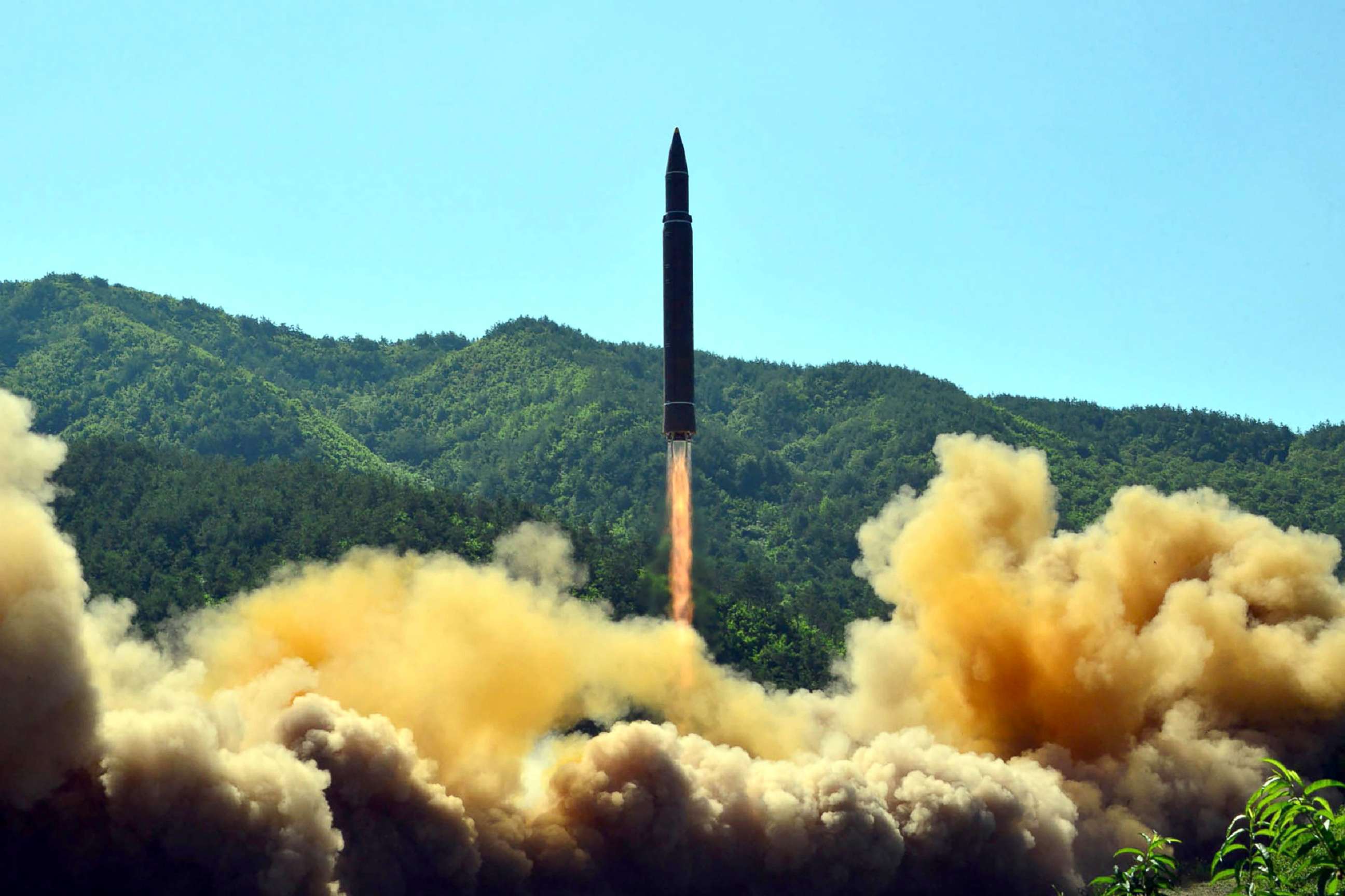North Korea 'clearly' has missiles that can reach US, general says
"On range, they clearly have the capability," Gen. Selva told Congress.
— -- The second-highest ranking military officer in the U.S. told Congress on Tuesday that while North Korea "clearly" has missiles with the capability to reach the United States, it does not have the capacity to strike accurately or successfully.
On July 4, North Korea successfully tested its first intercontinental ballistic missile (ICBM), which traveled into a high-altitude trajectory of 1,730 miles and flew horizontally about 575 miles into the Sea of Japan.
"I ... am not sanguine that the test on the Fourth of July demonstrates that they have the capacity to strike the United States with any degree of accuracy or reasonable confidence of success," Gen. Paul Selva, vice chairman of the Joint Chiefs of Staff, told the Senate Armed Services Committee.
"On range, they clearly have the capability," he added.
Despite North Korea's success on July 4, experts assess that the regime does not presently have the re-entry technology needed for a nuclear warhead to reach its target. It's also believed that North Korea lacks the ability to miniaturize a nuclear warhead capable of being mounted on top of an ICBM.
But the test did demonstrate that this new missile -- if fired at the proper trajectory -- was capable of reaching Alaska.

"Testing an ICBM represents a new escalation of the threat to the United States, our allies and partners, the region, and the world," Secretary of State Rex Tillerson said in a statement following the test earlier this month.
As with some previous missile tests, the ICBM was fired via a mobile-launcher, making it harder for U.S. intelligence to track the movement of North Korea's weapons, something Selva said concerned him.
"I'm reasonably confident in the ability of our intelligence community to monitor the testing but not the deployment of these missile systems," he said. "Kim Jong-un and his forces are very good at camouflage, concealment and deception."
Despite Tillerson's assertion that the ICBM test represented an "escalation of the threat" to the U.S., the Trump administration has insisted it will use diplomacy first in dealing with this latest provocation.




